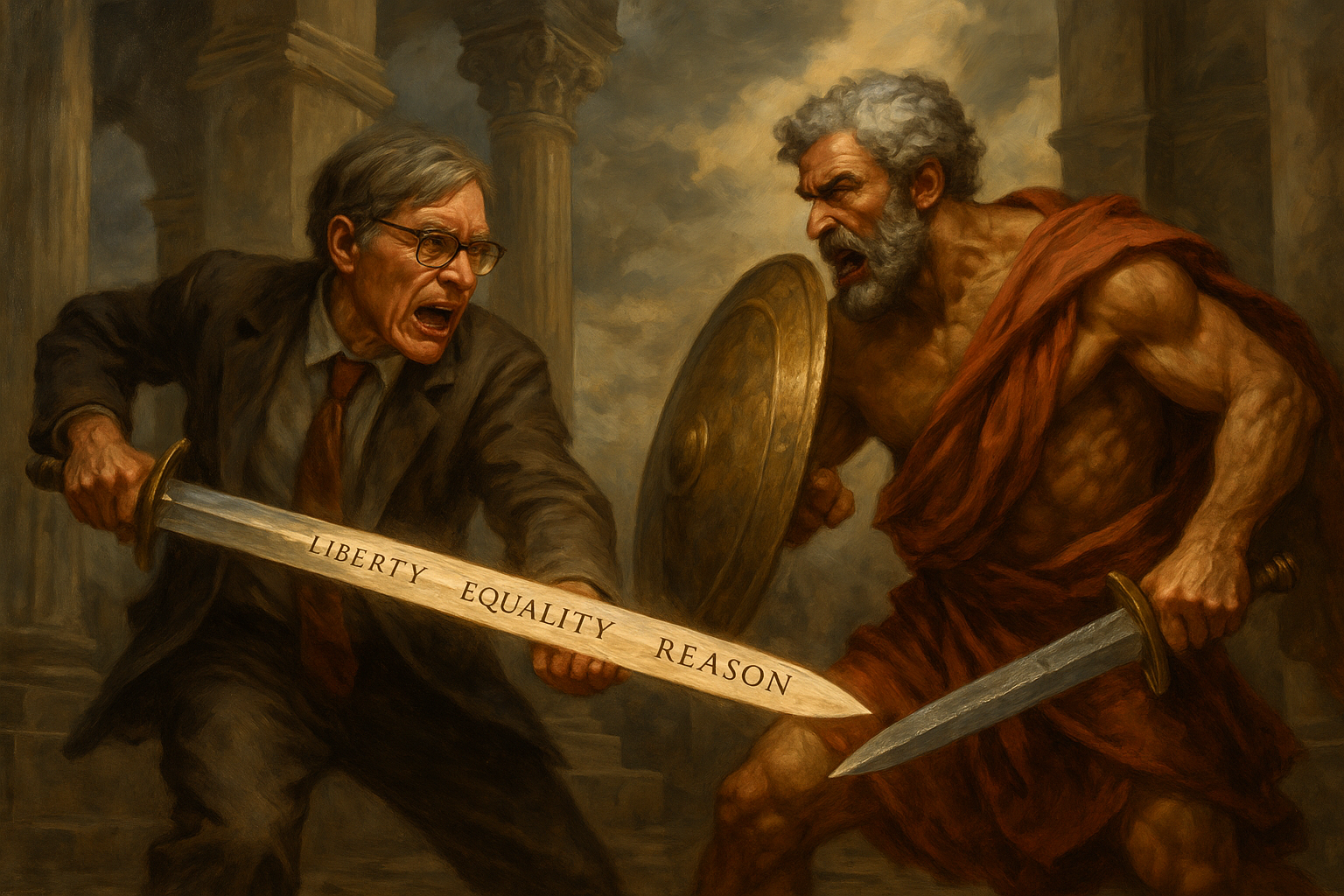Setting:
A timeless marble forum outside of time and space — a crossroads of ideas, where great thinkers gather. Statues of Reason and Power loom in the background. Thunder rumbles ominously in the distance.
John Rawls (adjusting his spectacles, calm and measured):
"Thucydides, your history reflects a bleak view of human nature. Power, war, domination—these are your guiding stars. But justice, fairness—these must be the pillars of any legitimate society. My 'original position' allows us to determine principles of justice without bias."
Thucydides (arms crossed, voice gravelly):
"And yet your justice depends on fictions. A veil? A hypothetical position? I wrote what I saw. The Athenians at Melos said it best: the strong do what they can, and the weak suffer what they must. That is the world as it is."
Rawls (bristling):
"That is the world as it has been, perhaps. But it need not be so. My theory is a blueprint for moral progress, not a grim chronicle of despair. If everyone agreed to principles behind a veil of ignorance—"
Thucydides (interrupting, stepping forward):
"Agreements are fragile when power shifts. Your veil will be ripped aside the moment it no longer suits the strong. Justice is the luxury of the secure."
Rawls (voice rising):
"And realism is the excuse of the cynical. It enables tyranny, excuses cruelty, and justifies greed."
Thucydides (narrowing eyes):
"You mistake description for endorsement. I do not justify cruelty. I record it. But your theory—your elegant fantasy—it risks irrelevance. You speak of ideal agreements while men starve and bleed."
Rawls (now trembling with restrained fury):
"And you speak of suffering as though it were fate. I seek a world where institutions constrain the powerful—where rights are secured not by swords, but by shared reason."
Thucydides (voice now like distant thunder):
"Then perhaps it is time we test which vision holds."
Rawls (coldly):
"Are you suggesting... a duel of sorts?"
Thucydides:
"No. I am declaring one."
The forum trembles. A shield of bronze materializes on Thucydides' arm; in Rawls' hand, a blade of glowing principles—etched with 'Liberty', 'Equality', and 'Reason'. They circle.
The Fight:
Thucydides charges first, shield raised, quoting:
"War is a violent teacher."
Rawls parries with precision, quoting:
"Justice is the first virtue of social institutions."
Blows rain down. Steel meets idea. Realism slams into Idealism.
Thucydides swings low:
"You cannot reason with Sparta."
Rawls dodges, strikes back:
"Then Sparta must be tamed by institutions."
Thucydides lands a glancing blow—Rawls stumbles.
Thucydides:
"Your justice dies with the weak."
Rawls (bloodied, rising):
"No. My justice begins with them."
He lunges—his blade pierces Thucydides' armor.
Thucydides (falling, stunned):
"Perhaps... even truth can be slain... by belief."
Rawls, kneeling, whispers:
"Not slain. Refined."
Thucydides fades into dust. The wind carries away the words power and history. Rawls stands alone, but his blade flickers—unstable.
Epilogue:
Though Rawls wins, the blade dims. Without power to uphold it, even the fairest theory remains vulnerable. Somewhere, a statue of Thucydides cracks—but does not fall.



No comments:
Post a Comment